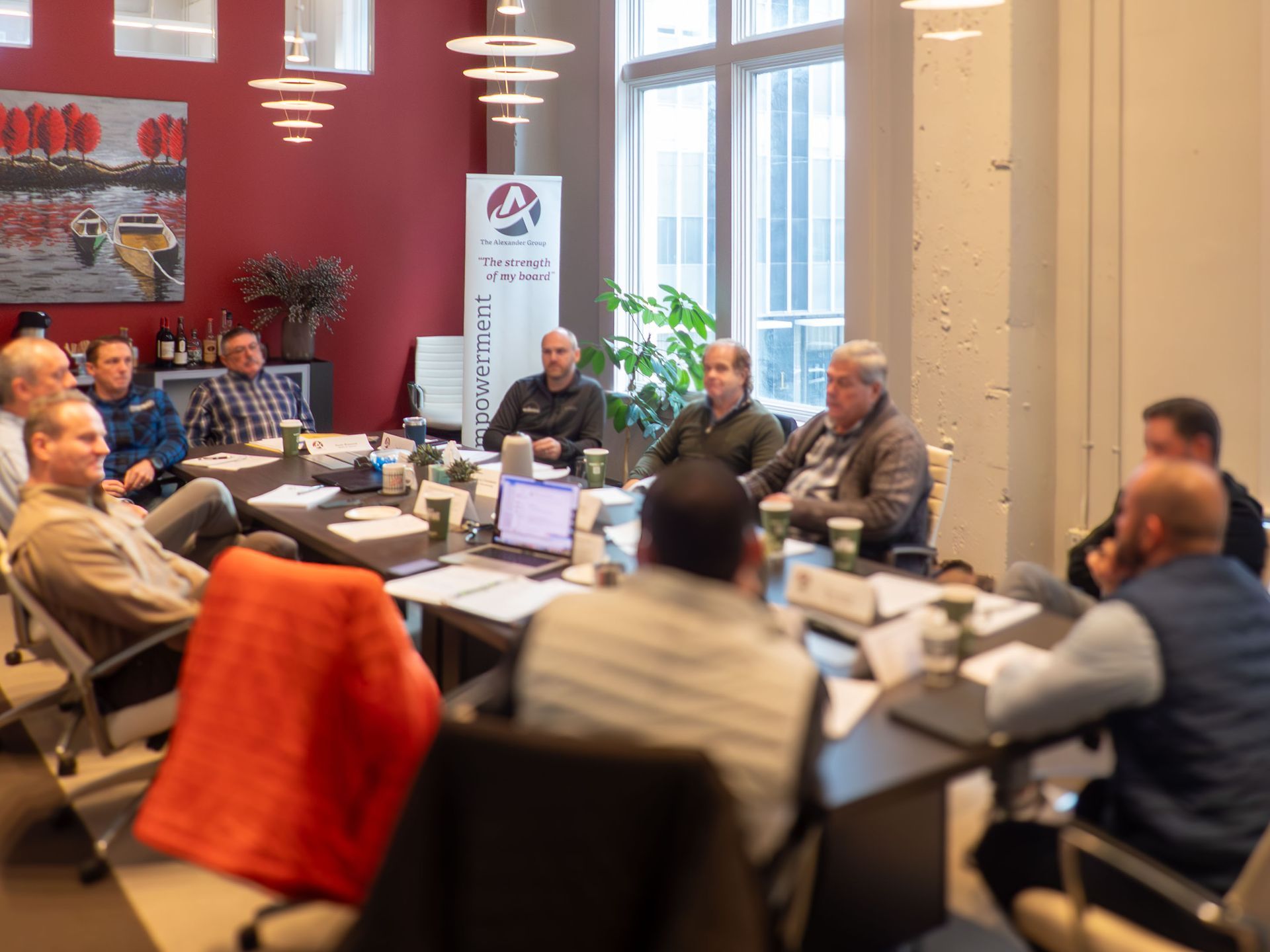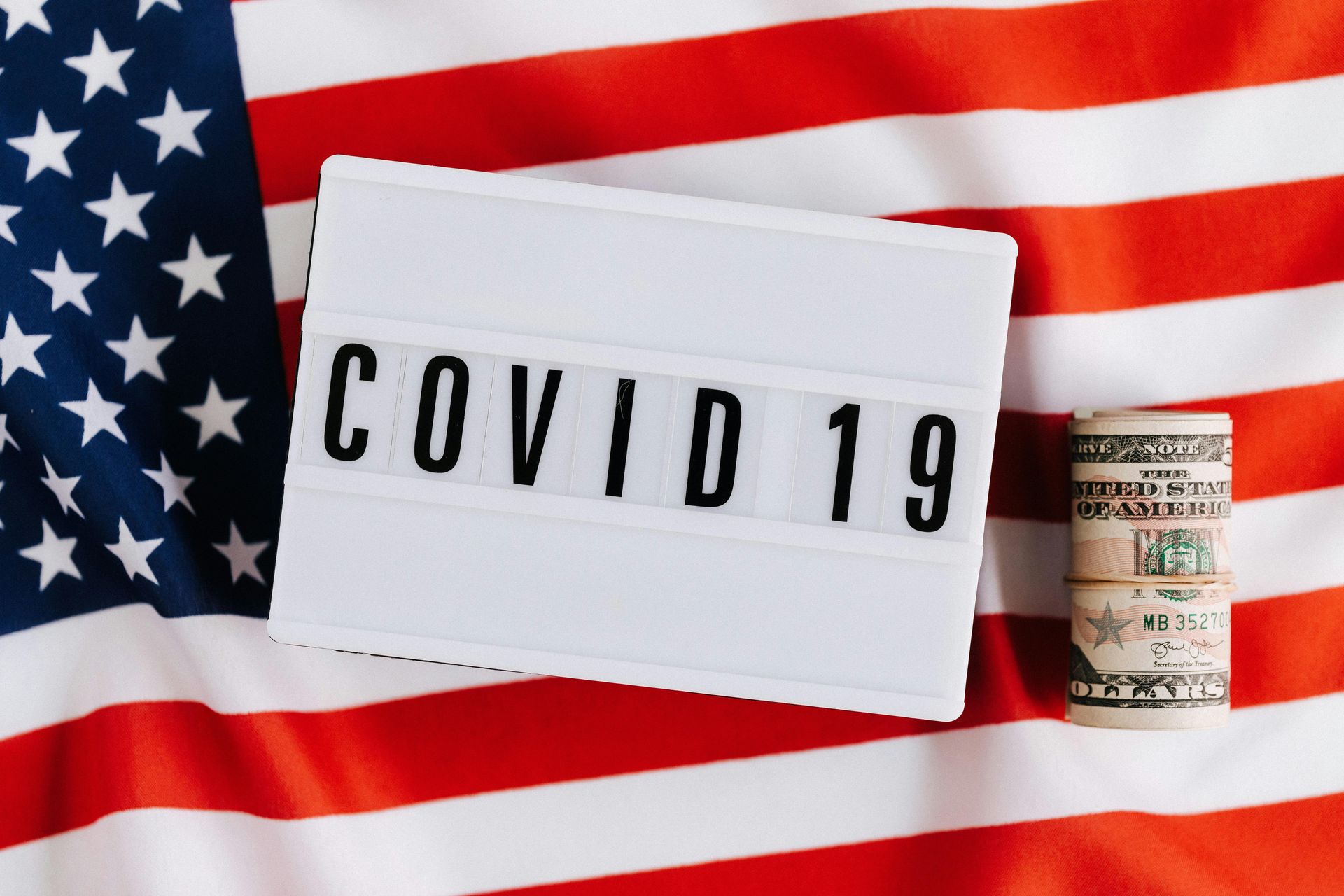New Paragraph

Take Fear Out of Tariffs: A Small Business Owner's Guide
March 14, 2025
Like most other small business owners, our peer board members are talking often about tariffs. Our consensus in board meetings has been to keep calm, breathe, and think about the big picture.
All politics aside, we need to remember that the long-term intent of President Donald Trump's tariff strategy is to move manufacturing jobs from other countries back to the US. We already see some major corporations responding exactly how Trump wanted by moving their operations back to the United States.
For example, Pfizer CEO Albert Bourla recently stated that the company is actively exploring options to relocate some of its manufacturing operations to the United States in response to the impending tariffs. Even luxury brands like LVMH are looking to move production from Europe into the US, as the Wall Street Journal reports here.
Further, the Trump Administration intends to get other countries (e.g., the EU) to spend more of their own money on defense so they will be less reliant on the United States military to defend them. If fewer US Military resources are required to help keep those countries safe, US taxpayers will ultimately benefit from lower defense spending.
Tariffs Don't Need to Create Panic
When we discuss tariffs, trading with the U.S., or other foreign policy plans, it is important for us to understand from an informed business perspective what the U.S. wants to accomplish. Throughout American history, presidents have used tariffs to create leverage to get concessions that will benefit our country, and this appears to be the Trump administration's strategy in 2025.
Unfortunately, our media and others have deployed fear-mongering tactics regarding tariffs. Small business owners must not give in to fear or panic. Rather, we should step back and look at the larger geopolitical picture.
Let's dive in.

Foreign Policy Considerations: EU and China
Recently, the Trump administration announced tariffs on aluminum and steel imports from Europe, which will affect many companies in the European Union. This round of tariffs is a significant increase from the tariffs the Trump administration applied in 2018.
The strategy behind these tariffs is to bolster U.S. steel production and encourage the EU to defend itself. If the EU moves to defend itself without/with less U.S. help, we can also lower our military spending. Currently, the EU has yet to respond or counter the tariffs.
China is getting worried. Xi Jinping, the President of the People's Republic of China, instructed his staff to study and analyze the Cold War rivalry between the U.S. and the Soviet Union shortly after President Trump was elected in November. Xi wants his team to study the Cold War not simply for a history lesson: he is worried that China may become isolated, not unlike the Soviets during the Cold War.
If President Trump and his administration can use tariffs against China to apply pressure, China may lose its stronghold on the global order. The Trump administration also hopes to improve national security, particularly citing Chinese infrastructure in the Panama Canal as a driving force in the fentanyl crisis.
As we move through the year, we will likely see more of President Trump's trade strategies emerge. While tariffs can initially feel daunting, these measures can impact our country on the whole and push us forward on the international stage.
What This Means for Small Business Owners
At the end of the day, small business owners should remember that a 10% tariff may not directly translate into a 10% price increase for their customers or from their suppliers.
For example, one of our clients is a wholesale supplier to independent automotive and hardware stores across the United States. One of his biggest product lines is plastic cable zip ties. Most of the zip ties he sells come from China.
Our client walked his board through the math. When the cost of the Chinese ties gets a 10% tariff, his cost goes up 10%. However, many "Overhead” aspects factor into the price he charges his hardware customers for those ties. Yes, the cost from the Chinese manufacturer goes up by 10%, but the shipping cost, warehouse labor, utilities, rent, etc., are not affected. So, a 10% tariff does not translate into a 10% increase in his selling price. He calculates that a 10% tariff will get passed on with roughly a 3% increase in his selling price.

Some Tariff Tips for Small Business Owners
Business owners should pay close attention to tariffs that affect not only the products they sell, but also the products they buy. Just like a 10% tariff should not translate into a 10% price increase for what they sell, they should also not just accept a 10% price increase from their suppliers if the tariff is 10%.
Again, small business owners must stay calm, collected, and informed. As we have asserted, there is no need to fall into fear or hysteria. We would also caution small business owners against any rash business decisions during this time.
Stay informed with credible sources about your business' industry news and politics at all levels. While international politics are on everyone's minds, don't neglect to keep up with state and local politics and the business landscape around you. Local changes can have a big impact on your business just as much (if not more!) as federal changes.
Work With The Alexander Group
Whether you're thinking about tariffs or the day-to-day challenges of running a small business, the Alexander Group is here to help. We help small business owners in Greater St. Louis achieve their vision in life and business. How do we accomplish this?
Cornell Meyer is our professional business coach who leads small business owners through one-on-one coaching geared toward continuous improvement. We are also proud of our peer boards of local St. Louis business owners, who come together to tackle common issues and give advice and support.
If you are a business owner ready to commit to improvement,
contact us today!





